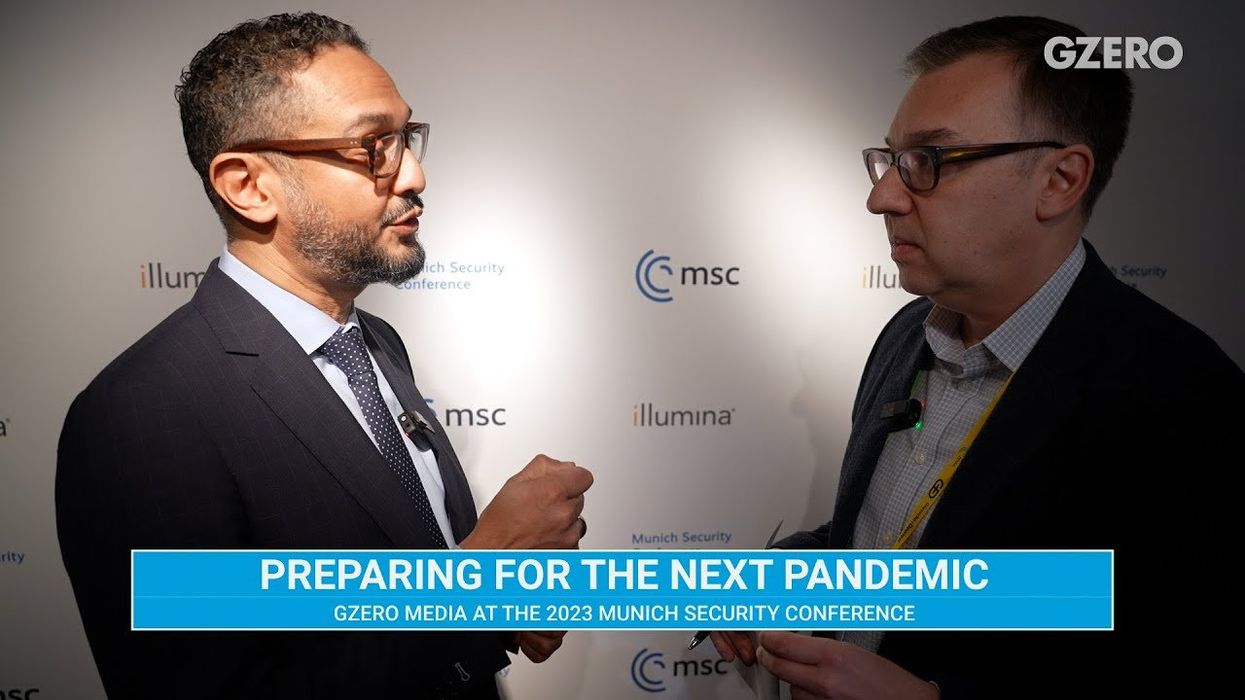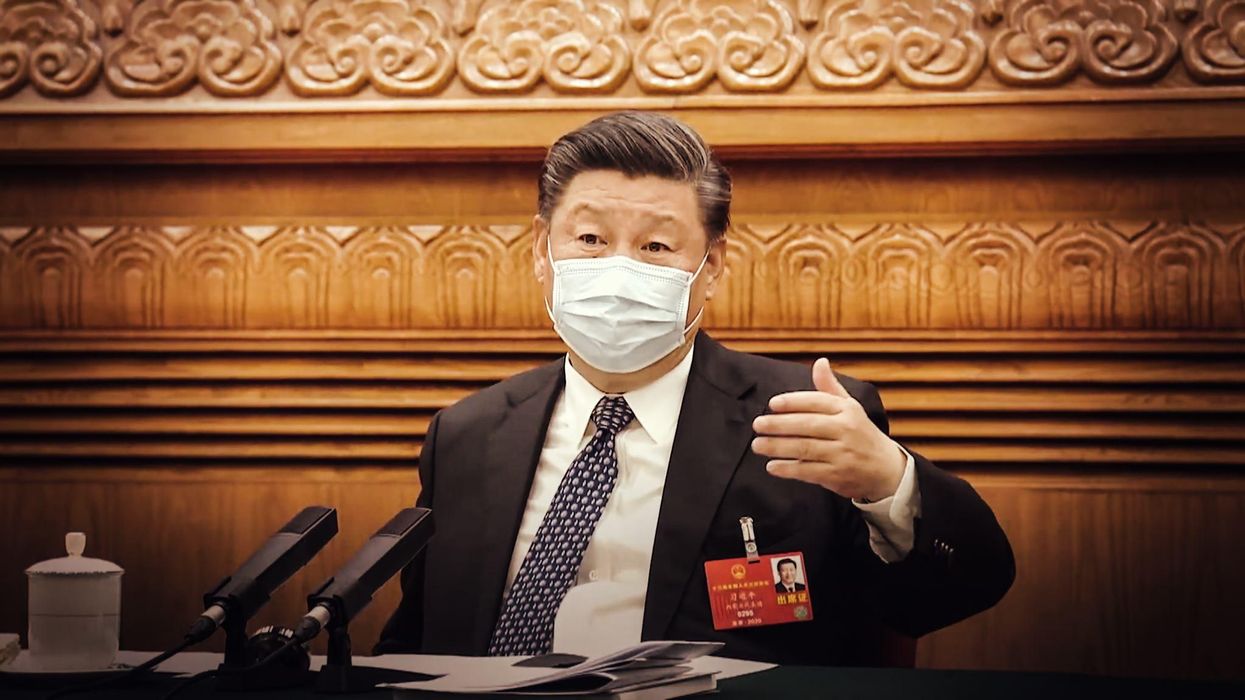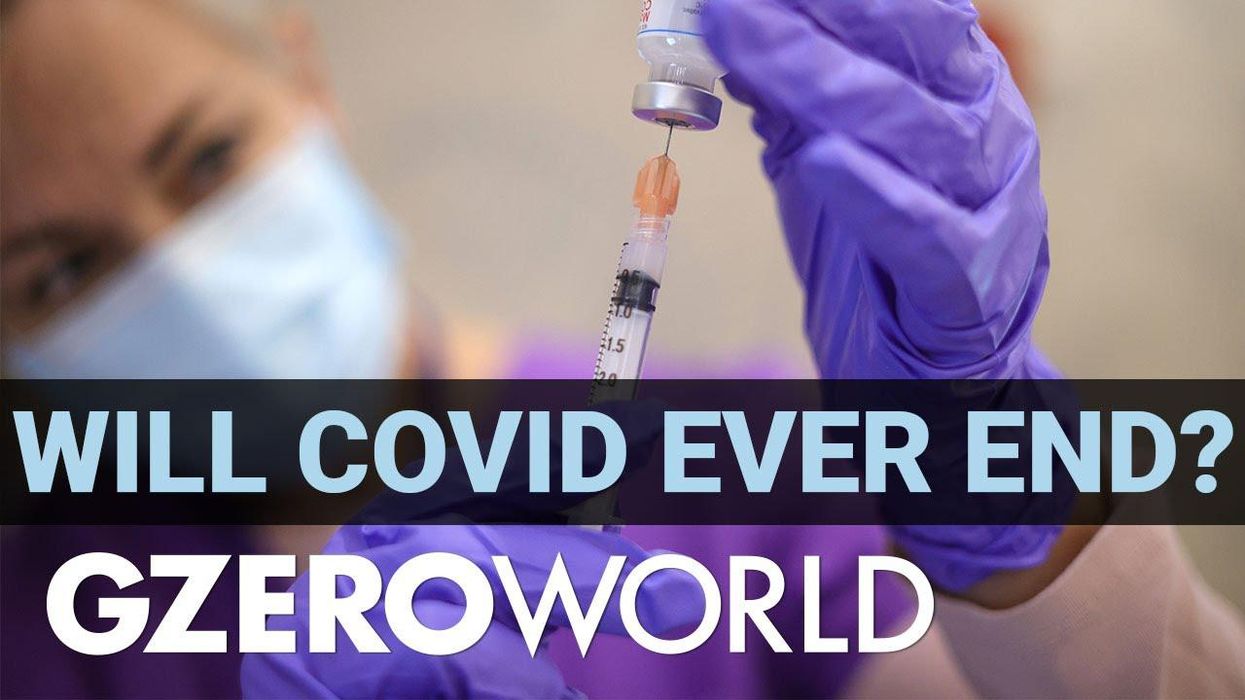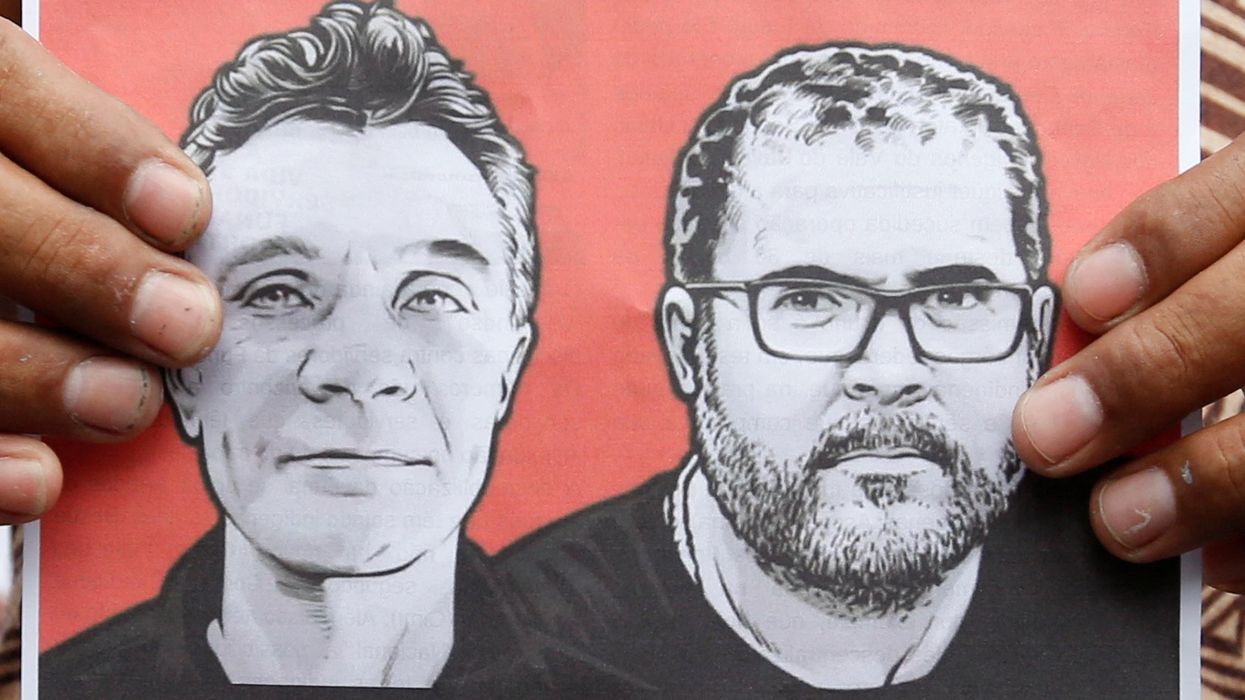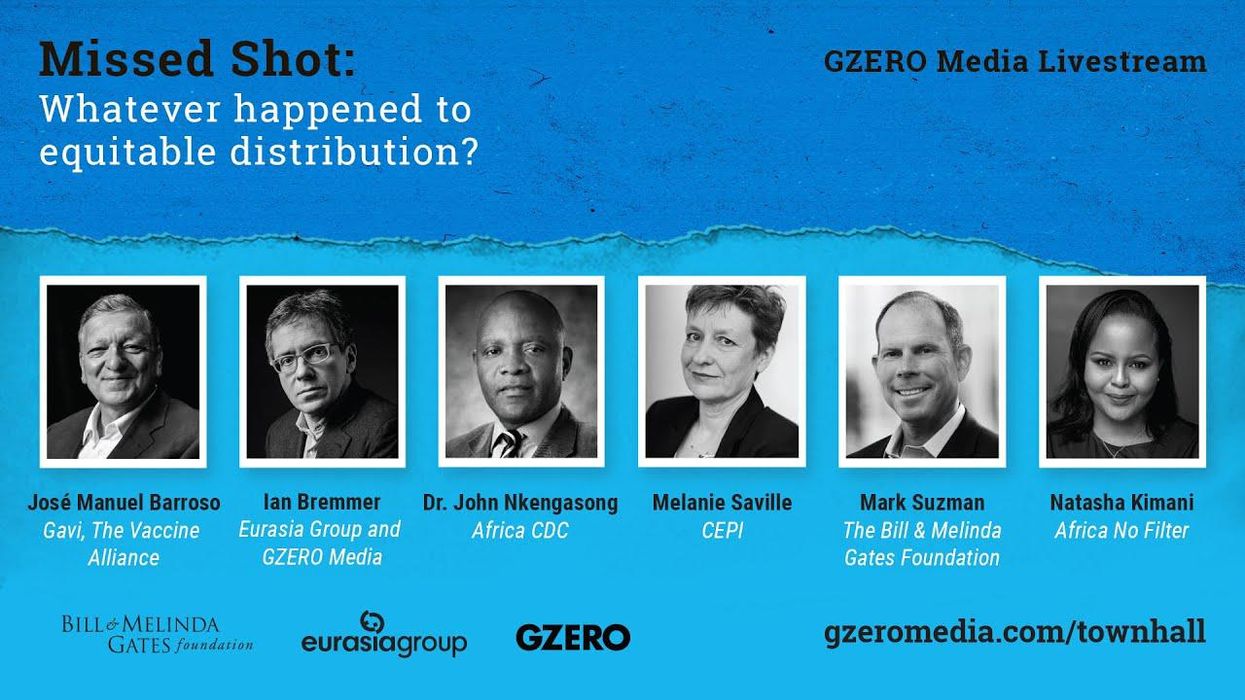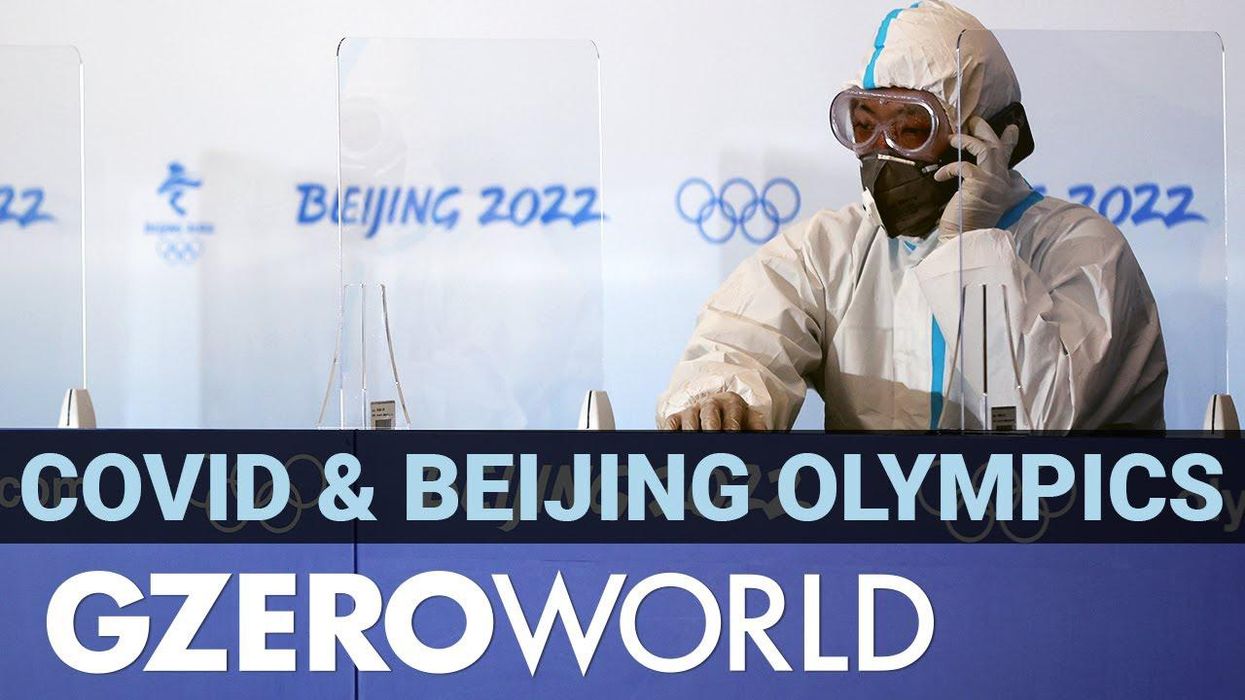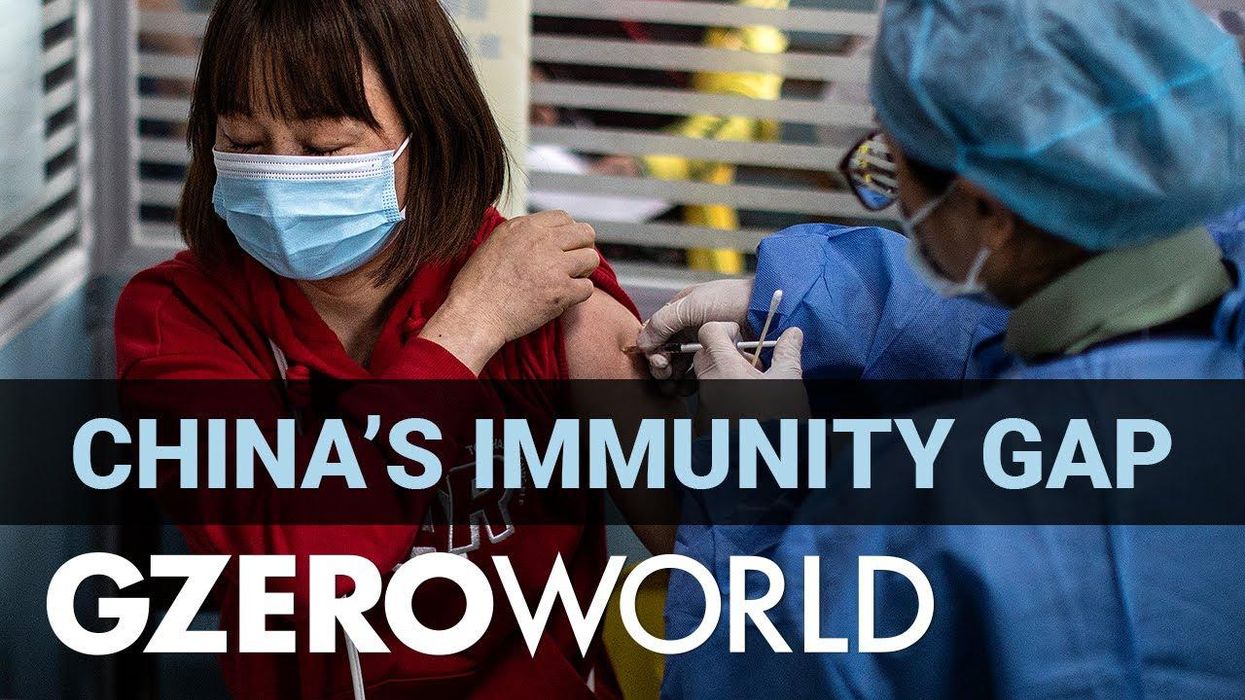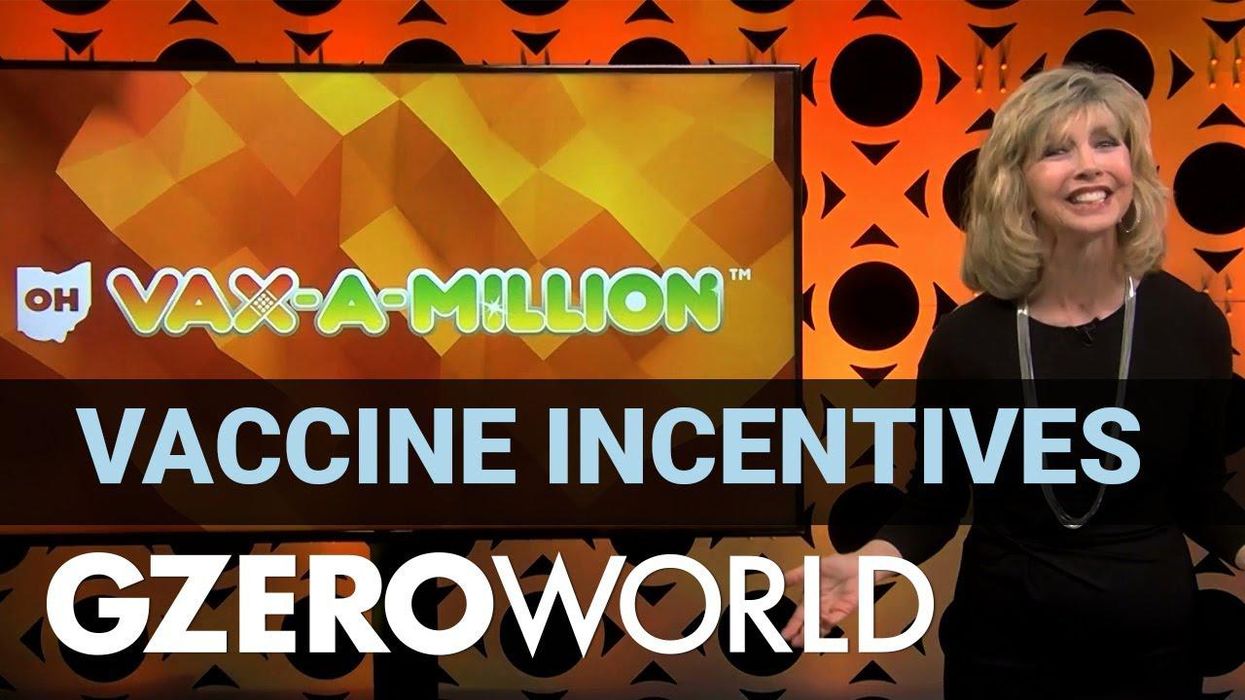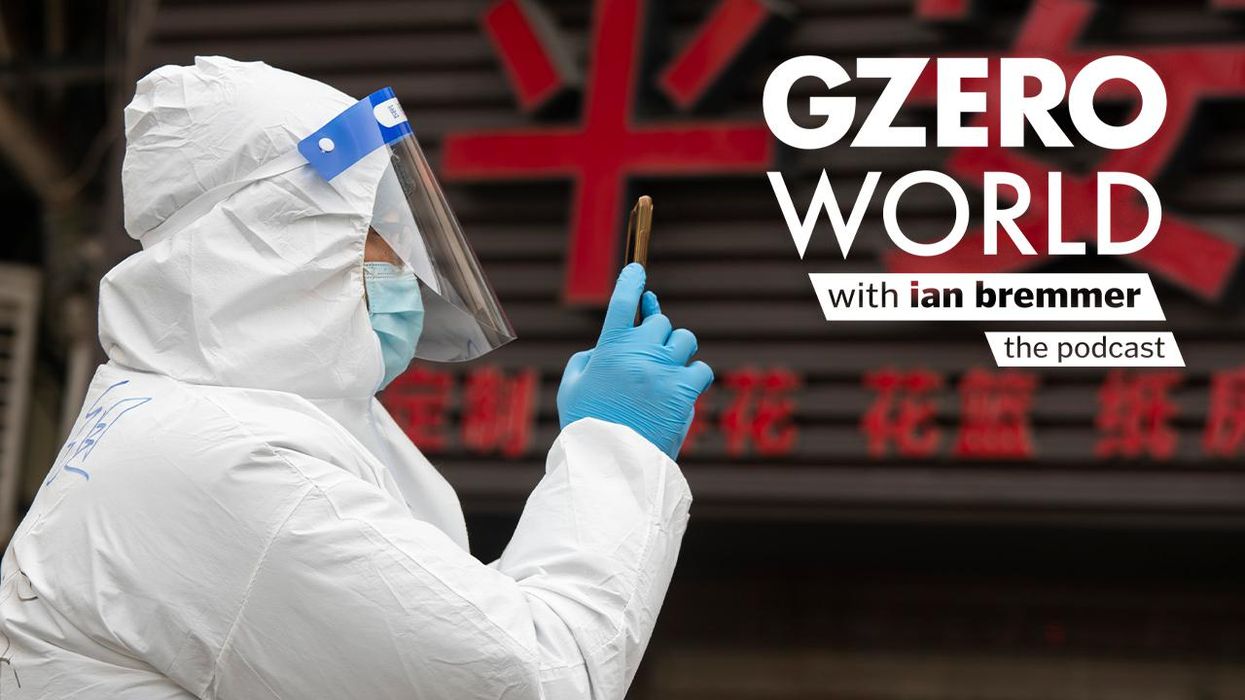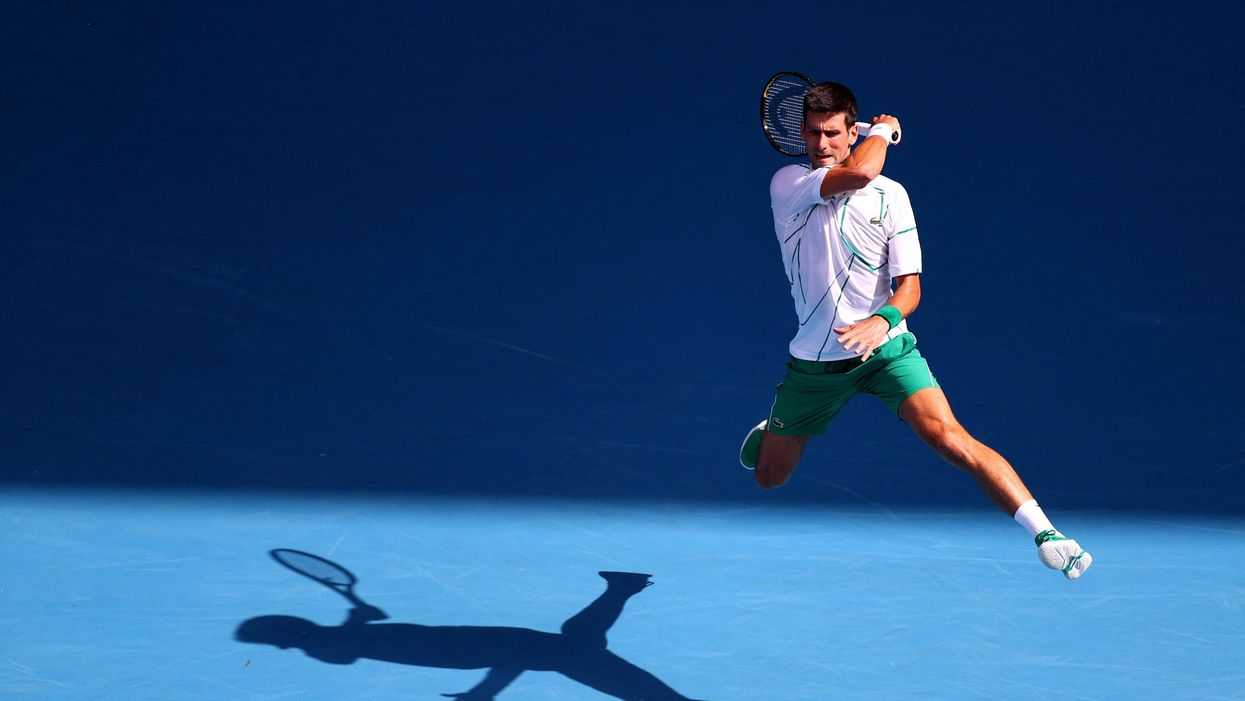Science & Tech
Can surveillance prevent the next pandemic?
Health security was another critical issue discussed at the Munich Security Conference. GZERO’s Tony Maciulis spoke to Francis deSouza, CEO of the biotech company Illumina, about how countries and regions can better communicate to stop the spread of new pathogens and the road ahead for the rapidly growing genomics industry.
Feb 20, 2023
